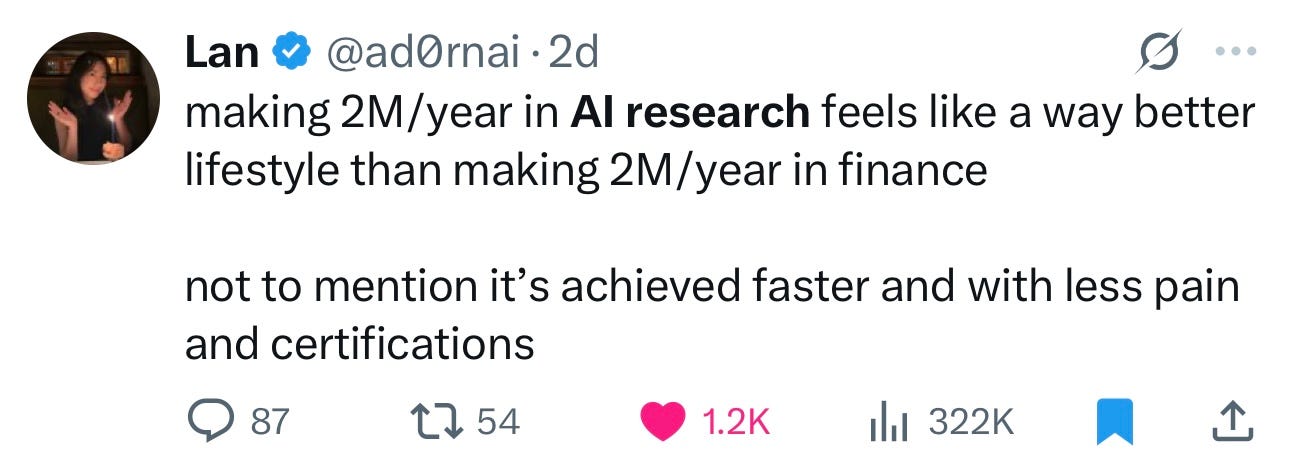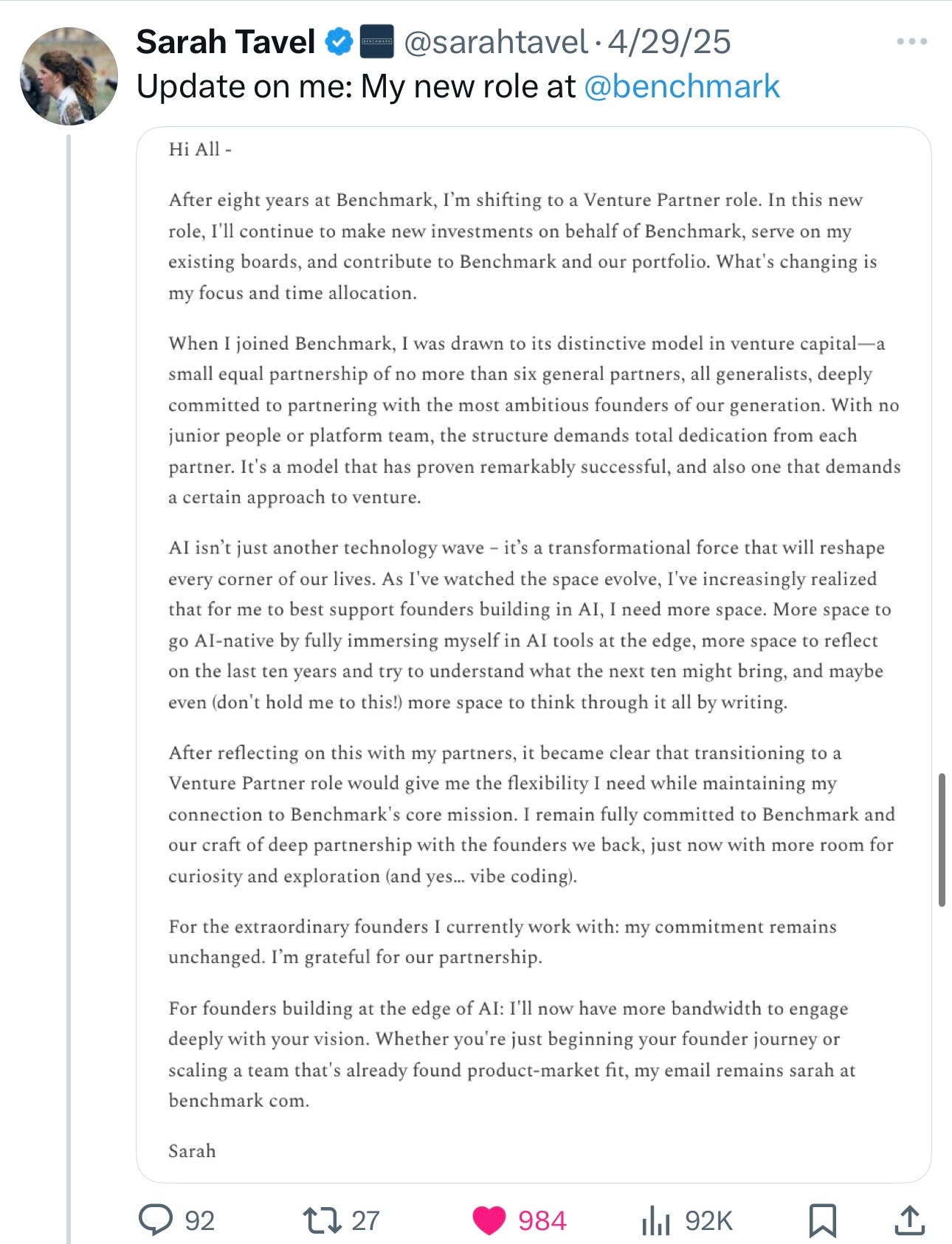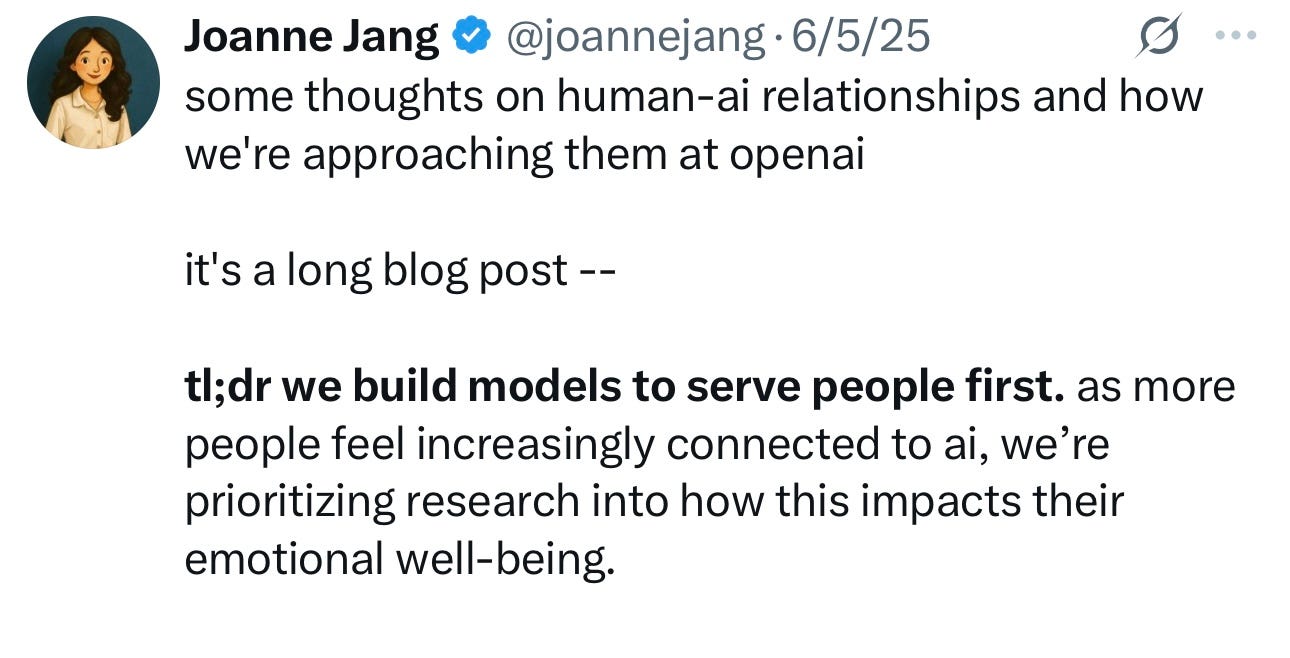The Rise of Industry Academics in Silicon Valley
Why 60% of YC founders now have advanced degrees & research is the hottest new role at early stage companies.
I recently published The Six Builders who will Thrive in the Era of AI.
Of all of the personas that informed the creation of Worklife and people I believed would thrive in the new era of work, The Industry Academics have been the group to explode the most over the last few years.
In 2019, as I was researching important skills and the non-obvious jobs of the future I saw OpenAI hiring a new profile of operator that was atypical for a startup and didn’t fit the usual profile of a scrappy full-stack engineer (builders) or an early customer-facing go-to-market (sellers). There was a highly educated, deeply focused, and more research-driven hire (thinkers and writers).
Today, the most interesting operators at the fastest growing software companies are not writing code or selling to customers. They’re heads-down conducting research, publishing industry-leading white papers, and using their own methodologies and AI tools to conduct the equivalent of a decade or more of research in a matter of weeks.
The level of insights and intelligence we’re seeing at early stage companies is unprecedented. This shift has attracted both highly credentialed academics with decades of experience and recent graduates who typically explore roles at Google, Microsoft, or large institutions with more traditional post-grad programs.
Historically, the term “researcher” or even “academic” could easily be dismissed or frowned upon by Silicon Valley folks. We are after all an ecosystem obsessed with building, doing, and shipping at a rate that would be unfathomable in other industries.
In a place where young people are drawn to the industry-wide emphasis on experimentation and our unique ability to “move fast and break things,” how does a researcher who carefully and thoroughly studies a topic fit in with the rest of the fast-moving culture in the Valley?
For many repeat founders and even the most highly regarded venture capitalists, you’ll notice a shift where going deep and taking a more research-intensive approach is leading to more robust product building and thinking. There’s a reason why some of the most highly respected voices in the Valley have hit pause on any short-term ideas or opportunities to thoroughly understand what’s being built today and how AI will change every aspect of our lives in the future.
@Suhail and
being two recent examples.My personal obsession with researchers and academics in tech stemmed from my time at Zendesk building Zendesk for Startups which included a close relationship with Station F, the Family, and top technical schools in France.
I love Paris for its rare combination of style and intelect. Many of the best data scientists, AI researchers, and industry academics have graduated from top technical programs there. The ecosystem there feels noticeably more academic, which has pros and cons, but spending time in the region gave me a deep appreciation for the thoughtful approach to building. Hugging Face is one of my favorite examples of a French team that has contributed so much knowledge to the broader tech ecosystem. Many operators today credit their interest in AI/ML to the early days of Hugging Face. I also find myself bookmarking so many papers from their Daily Papers, which feels like the equivalent of Product Hunt for researchers.
Today, Cursor, Anthropic, and many AI companies start as research companies and as they scale research continues to a core value for the company. This has created entirely new types of builders who will ultimately leave and start companies in areas they’ve spent years thoroughly researching both what’s possible from a technological perspective and increasingly the societal impact of the technology we’re building.
OpenAI’s Head of Model Behavior and Policy Joanne Jang shared an important and thought provoking update on how OpenAI is closely studying the emotional well-being of users. Chat is now a trusted therapist and increasingly a viable romantic partner for its 400M weekly active users in such a short amount of time does raise long-term questions on tech’s role in shaping human-ai relationships.
As I reflect on the pitches from Summer 2025 Demo Day it’s clear that the Industry Academics are gaining power and influence in Silicon Valley.
In Summer 2019, 15% of YC founders had a postgraduate degree. 85% of founders had a bachelor’s degree or no college education, the latter has been a beloved archetype for many years in the Valley as Apple, Microsoft, Facebook, and Oracle were founded by college dropouts.
In Summer 2023, 36% of YC founders had a postgraduate degree. An increasing number of founders had additional education, but in spaces like biotech where some form of advanced degree in medicine is required to build in the space.
In Summer 2024, 55% of YC founders had a postgraduate degree and 72% of founders had a background in Computer Science as this batch was AI focused with 67% of founders based in San Francisco Bay Area, which has become the epicenter of AI globally.
The most recent batch that presented yesterday had the largest number of postgraduate founders close to 60% because of the batch’s emphasis on AI, which signals not only are the Industry Academics joining well-funded, research-focused AI companies, they’re also taking the leap and starting their own startups immediately after graduation or a couple of years operating at a Silicon Valley startup.
If you’re thinking about next steps, we’re a first check firm that backs operators leaving top companies. We’ll invest up to $2M and help you every step of the way to product-market fit.







